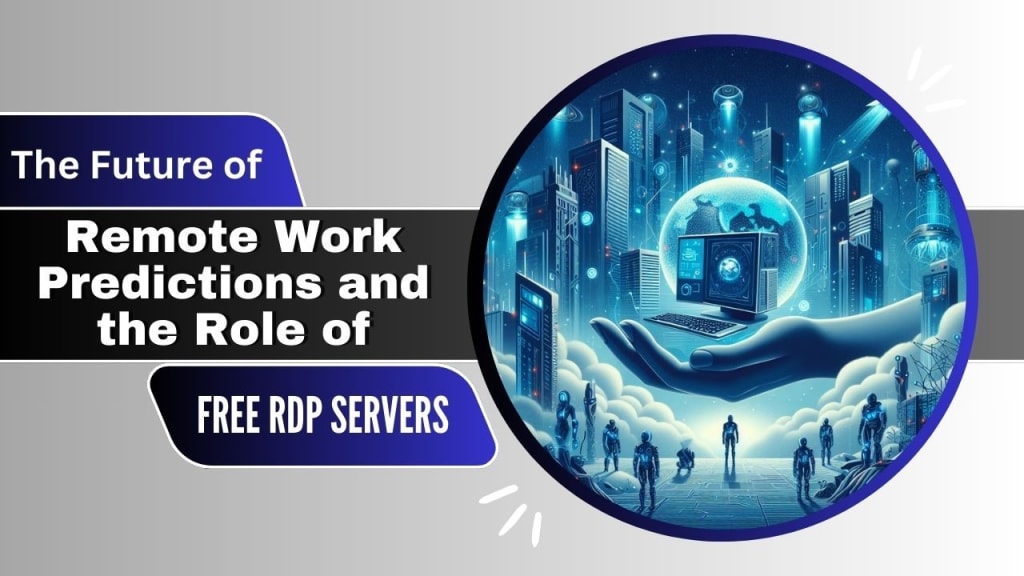The Future of Remote Work: Trends and Predictions for the Next Decade
Impacts of remote work

The COVID-19 pandemic significantly accelerated the shift towards remote work, creating a seismic change in how businesses operate and how employees perceive their work-life balance. As we move further into the 2020s, remote work continues to evolve, shaping the future of the workplace in profound ways. Here, we explore key trends and make predictions for the next decade.
1. Hybrid Work Models Become the Norm
One of the most significant trends is the adoption of hybrid work models. Companies are increasingly offering employees the flexibility to split their time between the office and remote locations. This model provides the best of both worlds: the social and collaborative benefits of in-person work and the convenience and comfort of remote work.
Prediction: By 2030, the majority of companies will have established hybrid work policies, with flexible arrangements becoming a key factor in job selection for employees.
2. Advancements in Virtual Collaboration Tools
The surge in remote work has spurred innovation in virtual collaboration tools. Platforms like Zoom, Microsoft Teams, and Slack have seen rapid adoption and continuous improvement. Future advancements will likely include more immersive technologies, such as virtual reality (VR) and augmented reality (AR), to enhance remote meetings and collaborative projects.
Prediction: By the end of the decade, VR and AR will be commonplace in remote work, providing more engaging and interactive virtual environments for teams.
3. Focus on Cybersecurity and Data Protection
With the increase in remote work, cybersecurity and data protection have become paramount. Companies are investing more in robust security measures to protect sensitive information and prevent cyberattacks. Enhanced security protocols, including multi-factor authentication and encrypted communications, are becoming standard.
Prediction: As remote work continues to grow, so will the sophistication of cybersecurity measures, with AI-driven security solutions becoming integral to business operations.
4. Rise of Remote Work Hubs and Co-Working Spaces
While some employees enjoy working from home, others miss the structure and social interaction of an office environment. This has led to the rise of remote work hubs and co-working spaces, offering a middle ground. These spaces provide professional environments without the need for a long commute.
Prediction: By 2030, remote work hubs will proliferate, offering tailored environments for specific industries and communities, and becoming key components of urban and suburban work ecosystems.
5. Emphasis on Employee Well-being and Mental Health
Remote work can blur the lines between personal and professional life, potentially leading to burnout. Employers are increasingly recognizing the importance of supporting their employees' mental health and well-being. Initiatives include flexible working hours, mental health days, and access to wellness programs.
Prediction: Mental health support will become a standard component of employee benefits packages, with companies offering comprehensive programs to support well-being.
6. Global Talent Pool and Competitive Advantage
Remote work has effectively removed geographical barriers, allowing companies to tap into a global talent pool. This shift has made it possible for businesses to find the best talent regardless of location, fostering greater diversity and inclusivity.
Prediction: By 2030, hiring practices will be predominantly remote-first, with companies leveraging global talent to drive innovation and maintain competitive advantage.
7. Sustainable Work Practices
Remote work has the potential to significantly reduce the carbon footprint associated with commuting and office energy consumption. As environmental concerns continue to rise, companies are adopting sustainable work practices and encouraging remote work as a means to reduce their overall environmental impact.
Prediction: Sustainability will become a key consideration in remote work policies, with companies implementing green practices and promoting remote work as part of their corporate social responsibility initiatives.
Conclusion
The future of remote work is bright, characterized by greater flexibility, technological advancements, and a focus on well-being and sustainability. As we move towards 2030, these trends and predictions highlight a transformative era for the workplace, where remote work is not just an alternative but a fundamental aspect of how we work and live. Embracing these changes will be crucial for businesses and employees alike, ensuring a productive, balanced, and inclusive future.
About the Creator
Enjoyed the story? Support the Creator.
Subscribe for free to receive all their stories in your feed. You could also pledge your support or give them a one-off tip, letting them know you appreciate their work.





Comments
There are no comments for this story
Be the first to respond and start the conversation.